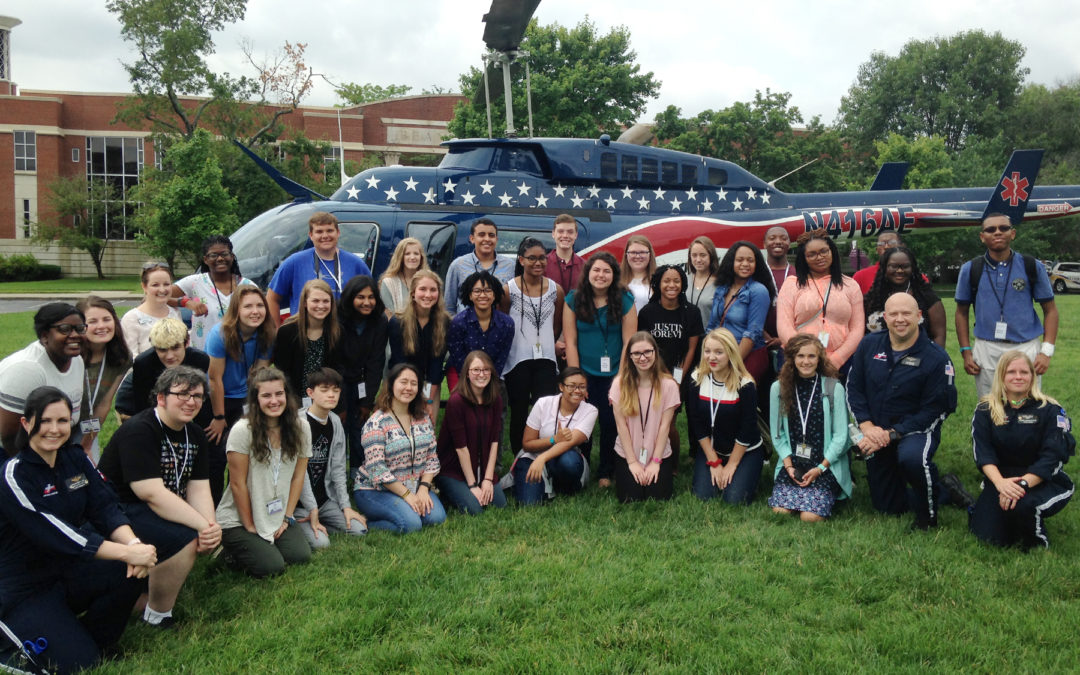Reporting by J-Campers Delia Batdorff, Alak Johnson, Linh Pham and Nisha Ramanna
On the front lawns of Lipscomb University, students lay on the grass groaning about sprained ankles and pain in their bodies.
A bell rang, and young medical campers jumped into action. In the midst of the mock crisis, they focused on the task at hand: treating their patients in a calm manner.
The simulation was hosted by the Lipscomb-HCA TriStar Health Care Academy, where students come and learn the basics of healthcare June 4-9. The camp offers a unique perspective for high school students who show a keen interest in pursuing medicine.
In this simulation, students worked in a “crisis” situation. While victim volunteers act out symptoms of injuries such as heat strokes and bug bites, the campers had to absorb the situation and apply treatment as if it was real. This process is called SOAP (Subjective, Objective, Assessment and Plan) and was taught by Kathy Williams, instructor of nursing at Lipscomb.
“This will give them the basics [first aid], and the fact that they can do it and that they can see — they can ask questions,” Williams said. “They’re going to go out, and . . . learn how to take care of a patient.”
Shekinah Gordon, a journalism camper, played one of the victims.
“They used fake sweat, like a highlighter powder and some blush,” Gordon said, adding, “I wanted to be a victim because I had never done it before and wanted to see what it was like.”
Student Emily Cooper participated as one of the healthcare campers and noted that she appreciated having the opportunity to apply the new skills she learned to a real-life scenario.
“It was really cool because in the classes when we were learning about the snake bites and the wounds, it was like ‘Cool, we’re learning stuff,’ but now we can actually apply those skills and help people,” Cooper said.
At the end of the simulation, a medical helicopter from Air Evac was called in to provide the students with more information on the protocol for transportation of the ill. Helicopters have the ability to land in places that ambulances cannot reach while avoiding traffic and other blockage.
“We can manage in the air,” said Dana McDonald, a flight paramedic with Air Evac Lifeteam. “We can manage on the side of the road.”
Matthew Miller, a journalism camp victim volunteer, said he enjoyed the experience overall and thought it was beneficial and worthwhile.
“I feel like this is a really interesting learning opportunity for all the people in the camp,” Miller said. “They have to learn how to diagnose us and how to treat our injuries.”

